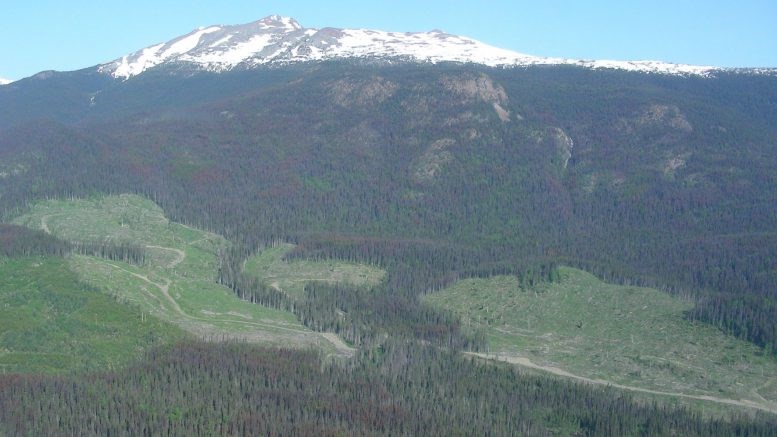FPX Nickel (TSXV: FPX) says its Baptiste nickel project in central British Columbia would cost at least US$2.2 billion to build and still be a high-margin supplier of battery metals or nickel concentrate.
Baptiste, FPX’s main asset, has an after-tax net present value (NPV) of US$2 billion ($2.7 billion) at an 8% discount rate and an internal rate of return (IRR) of 18.6% using nickel price of US$8.75 per lb., according to a preliminary feasibility study released on Wednesday. Annual free cash flow would be US$578 million.
The study’s base case suggests annual output of 59,100 tonnes of 60% nickel concentrate over 29 years, while an option to build a US$448 million refinery offsite in a city would produce battery-grade nickel sulphate, cobalt precipitate, and copper concentrate. Base case construction would start in early 2028 with first nickel by late 2030.
Improved resource modelling, mine planning, process recovery and site design increased the after-tax NPV contained in a preliminary economic assessment (PEA) released in 2020, the company said. That study had forecast US$1.7 billion at an 8% discount rate with an IRR of 18.3% and four-year payback period.
“Despite the inflationary pressures observed in the mining industry in recent years, the study has yielded after-tax NPV and IRR superior to those observed in the 2020 [PEA], reflecting greater engineering maturity and incorporating the several optimizations,” FPX president and CEO Martin Turenne said in a news release. “The study firmly establishes Baptiste as a key strategic asset in the development of Canada’s critical minerals.”
The study envisions that the project, 90 km northwest of Fort St. James, would have a mill throughput rate of 108,000 tonnes per day in phase one followed by a US$763 million expansion to 162,000 tonnes per day in the 10th year. This phase two would be funded from free cash flow after the initial after-tax payback period of 3.7 years. The plant will use a semi-autogenous mill followed by magnetic separation, froth flotation and a flotation tailings leach circuit.
If FPX decided to build the offsite refinery as part of the project, the whole concept would have a construction cost of US$2.6 billion and an after-tax NPV of US$2.2 billion with an IRR of 17.7% and a 3.9-year payback period.
The battery-grade refinery would annually produce 40,000 tonnes of nickel sulphate, 700 tonnes of cobalt in mixed hydroxide precipitate and 300 tonnes of copper in concentrate.
Low emitter
Access to Baptiste, part of FPX’s 245-sq.-km Decar nickel district in the Mount Sidney Williams ultramafic-ophiolite complex, will be by roads upgraded and expanded from the existing forest service network, FPX said. BC Hydro will supply power, giving the project a carbon intensity of 2.4 tonnes of CO2 per tonne of nickel produced. That would put Baptiste in the lowest tenth of global nickel production emitters.
Operating costs are estimated at US$8.15 per tonne milled over the mine’s life, according to the study. Phase one operating costs of US$7.88 per tonne milled are mainly because of a lower strip ratio of 0.41 then compared with 0.56 overall.
Including a 1% net smelter return royalty and capital to sustain, expand and close the mine, all-in sustaining capital is estimated at US$4.17 per lb. of nickel produced, FPX said. Total capital costs including construction, operation, expansion and closure would be US$4.4 billion.
First Nations
Davis Tube Recoverable (DTR) nickel recovery is estimated at 88.7%. Baptiste has 1.5 million proven and probable tonnes grading 0.13% DTR nickel or 0.21% total nickel for 1.9 million tonnes of contained DTR nickel or 3.1 million tonnes of total nickel, according to the study.
The project is located on the traditional territories of the Tl’azt’en and Binche Whut’en First Nations. FPX signed a memorandum of understanding with the Tl’azt’en Nation in 2012 and an exploration and development memorandum of agreement with the Binche Keyoh Bu Society in 2022.
The company has been working with and meeting local communities to understand key valued species and habitats in order to avoid and minimize impacts, it said.
FPX also has the Klow awaruite nickel project 55 km north of Baptiste.
Shares in FPX Nickel were down 3.6% to 39¢ on Wednesday, valuing the company at $108.1 million. Its shares traded in a 52-week window of 31¢ and 64¢.





